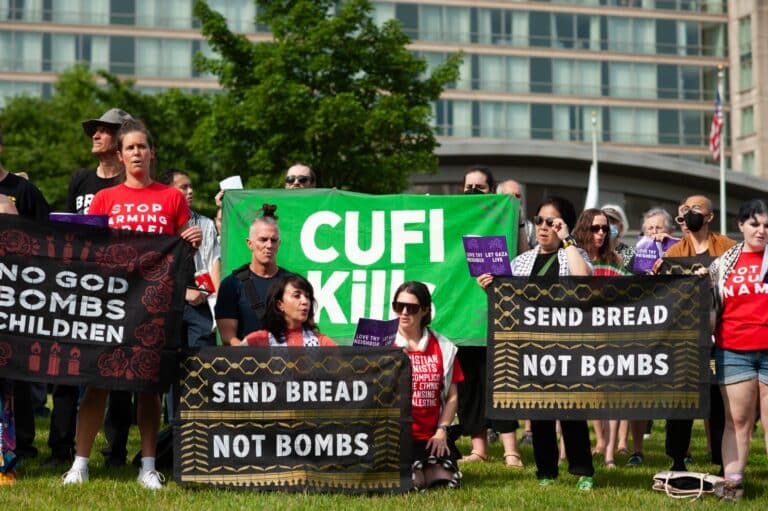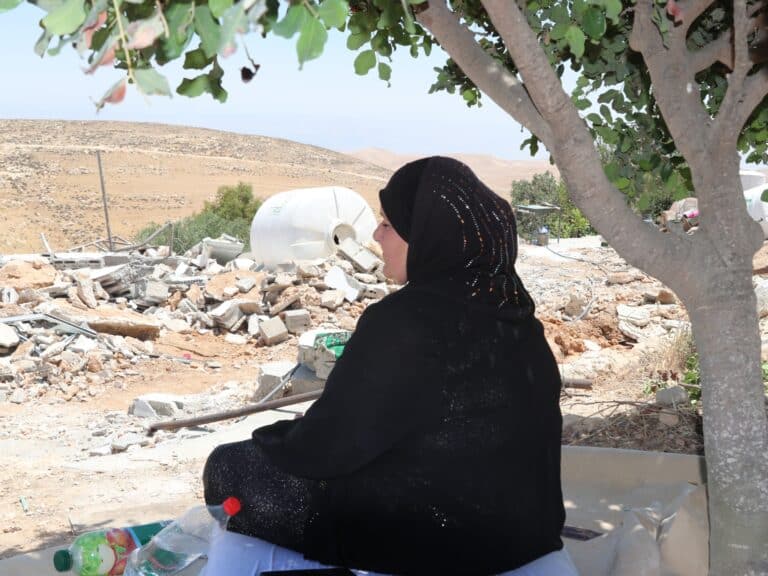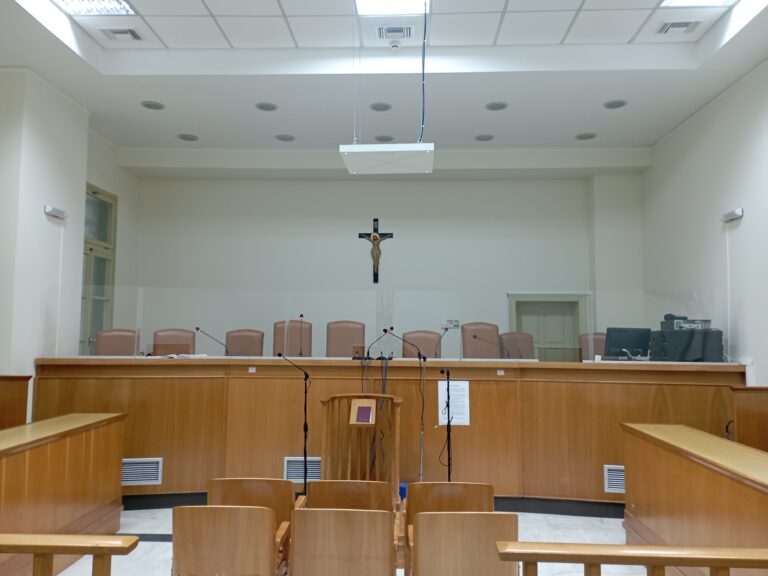“The tomatoes will be ready in a few days,” Mahmud told CPT-Iraq team members. “Yesterday there was bombing on this mountain.”
Mahmud is the leader of Kani Spi, a village in the mountains of the Kurdish region of Iraq a few kilometers from the Iranian border. He described intensifying battles between the PJAK (a resistance group fighting for the rights of Kurds in Iran) and Iranian military forces.
“The PJAK burned two Iranian tanks…and took over an Iranian base killing all the soldiers,” he said. “This made Iran very angry…so, they attack harder with shelling now. One night several bombs came close to Kani Spi. We heard the noise in neighboring villages. As it came closer, our whole village fled.”
Mahmud showed CPTers a piece of shrapnel as he continued. “Since 1991, Iran has shelled every year. CPT has been visiting us for five years. You have never seen the PJAK here. They operate inside Iran and Qandil, not here.”
His story went on. “Of Kani Spi’s twenty-three families, three did not return to the village after the end of the heavy bombing. But the farm needs everyone. We are busy planting and watering the fields every two days. The people have invested money in fertilizer for the fields. If the fields do not produce, it is a financial loss of between $2500 and $3000 per family. People are tired of this. Sometimes we can’t sleep at night for fear of the shelling.”
Iraqi officials report that so far this year Iranian cross-border attacks have killed four civilians, including a ten-year-old boy, and injured twelve. The Iranian assaults also displaced 800 residents from their homes in border villages, according to the International Committee of the Red Cross.
During a recent visit, villagers showed Iraqi Parliament members the Iranian bases which are inside Iraqi territory in violation of international law. The villagers also showed them the Iranian tanks facing their direction and craters where rockets had hit. The Parliamentarians said they would try to pressure the Iranian government to stop the attacks. They said the Iraqi government is trying to get foreign Consulates to speak out against the attacks. The villagers asked them for compensation for their losses. The Parliamentarians did not promise anything but said they would talk to Prime Minister Nouri al-Maliki.
“We have to continue our life,” insisted Mahmud. “We cannot go to the city. This is where we want to be. The problem is not religious or political – it is because we are Kurds. Turkey and Iran have problems with the Kurds in their countries. They want to move the problem to the border and inside Iraq. They don’t want the Kurds to have autonomy.”
ACTION
Iranian attacks into Iraqi territory not only violate international law but also destroy Kurdish communal life and harvests from recently-planted fields and gardens.
Reports indicate that more than 15,000 additional Iranian soldiers have amassed along the border together with about 200 officers from the Turkish army to further escalate this campaign. The Iranian military has erected outposts inside Iraqi territory and Iranian tanks have moved to within striking range of Iraqi villages.
This conflicted mountainous region has been home to the Kurdish people for more than 5000 years. The villagers inherited a way of life from their ancestors that should be protected and passed along to the children who will follow them.
CPT urges supporters to join the growing opposition to Iran’s assaults by contacting the Iranian Ambassador to the United Nations and sending an annotated copy of your letter to the United Nations Human Rights Council:
• Iranian Ambassador to the United Nations; 2 United Nations Plaza; New York, NY 10017 USA; e-mail: iran@un.int
• UN Human Rights Council; same mailing address; e-mail: civilsociety@ohchr.org
Sample Letter
The assaults by Iran in the mountainous regions of their border with Iraq are destroying lives, property, and community. I condemn these brutal actions against the Kurdish people and the human family. Please use the influence of your office to end this senseless disruption.




